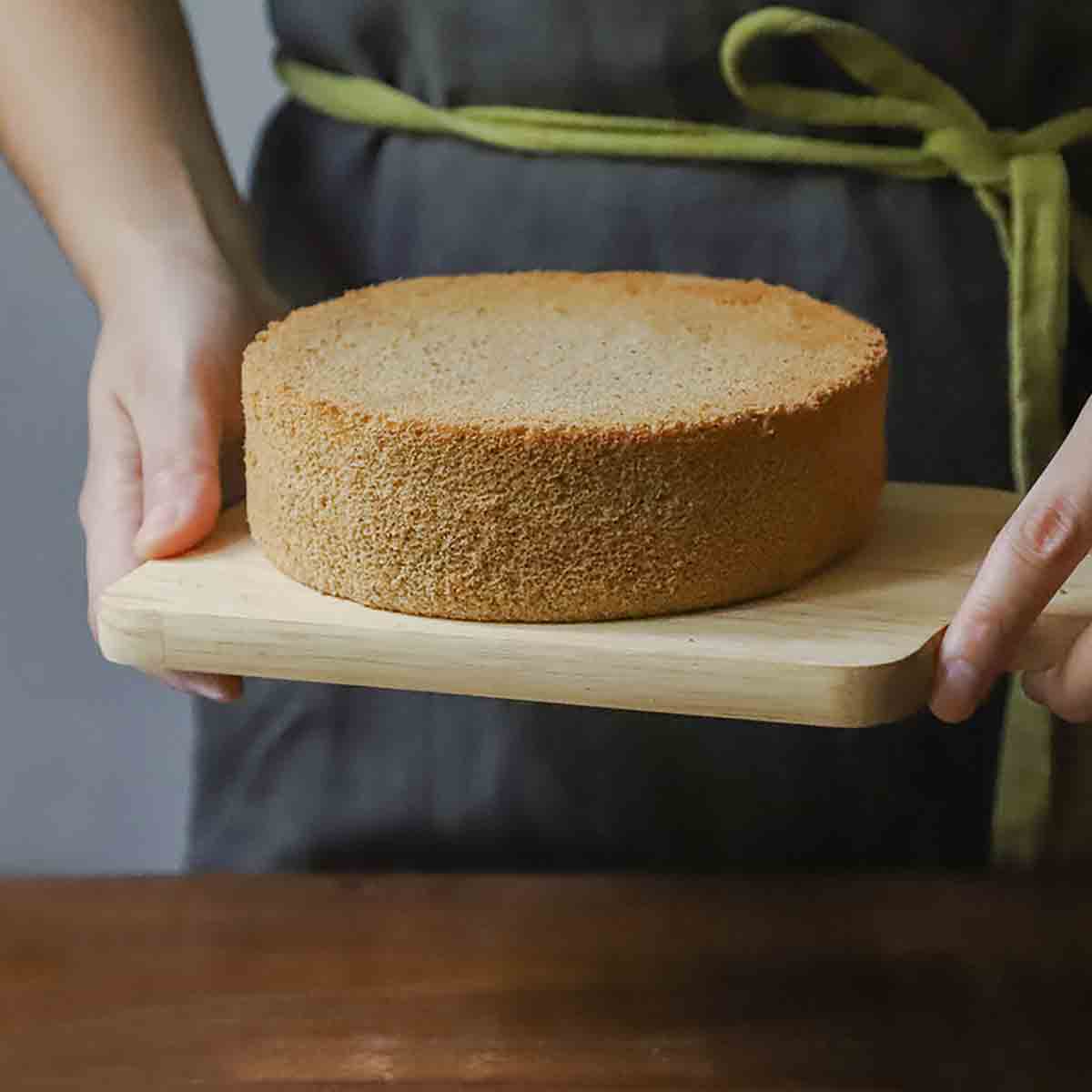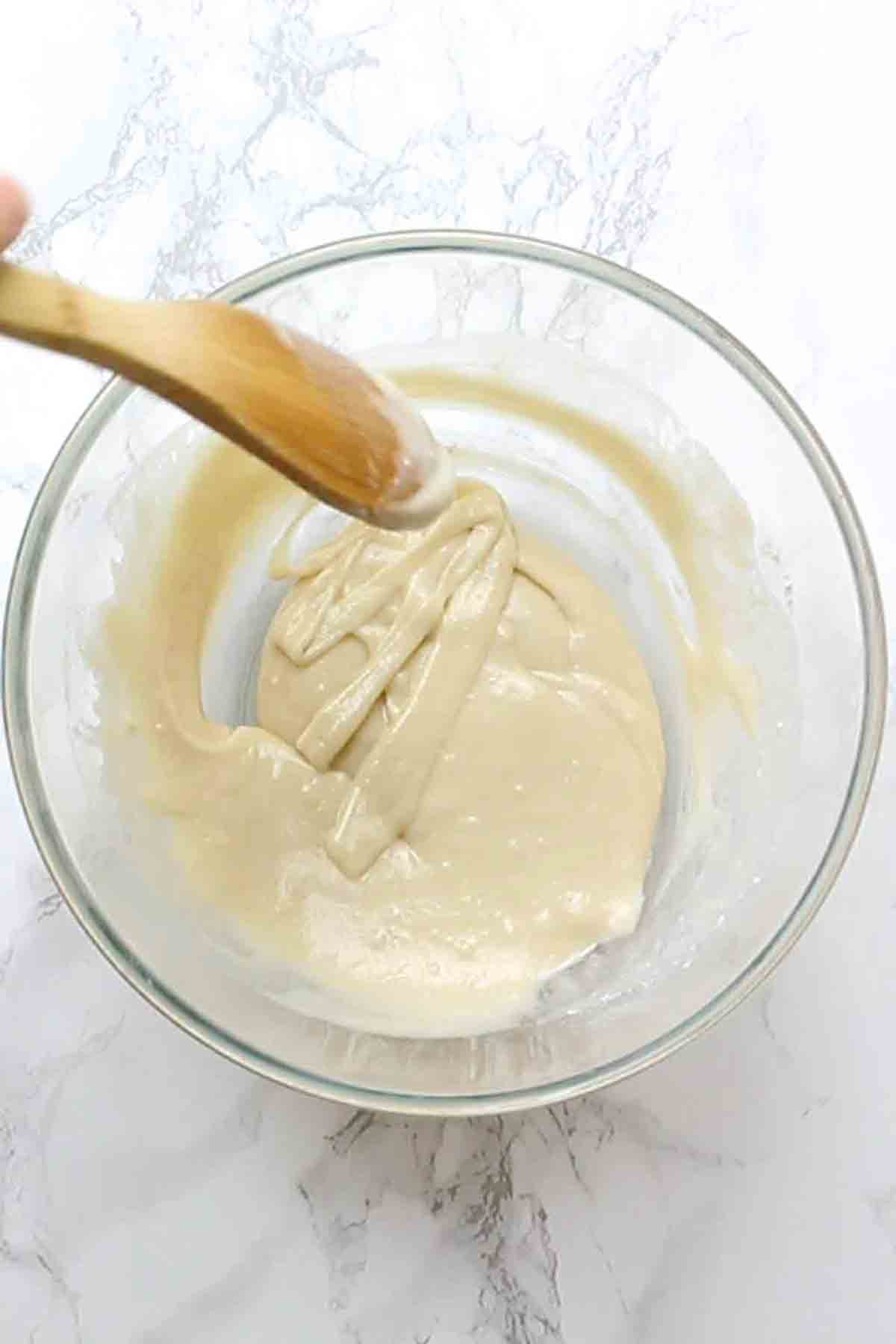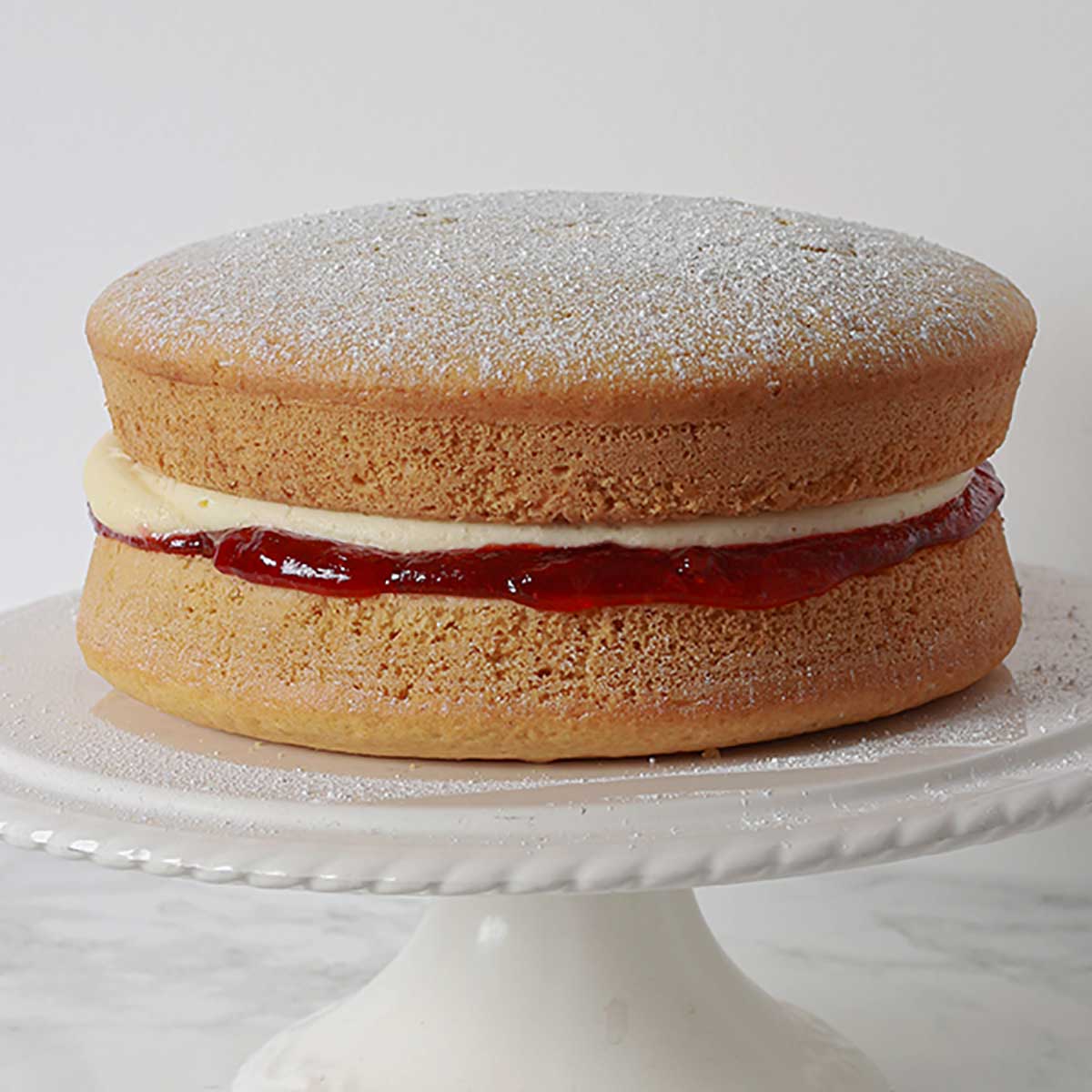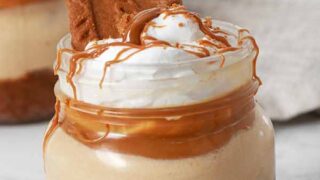Why Are My Vegan Cakes So Dense?
New to vegan baking and wondering why your vegan cakes are so dense? This post will help you understand some common baking mistakes that can cause this to happen and also how to prevent it from happening again.

I’m writing up some posts for my vegan baking beginners series and thought it would be useful to do some troubleshooting posts for cakes. I recently wrote a post about vegan cakes falling apart and today I’ll help you to understand why your cakes might turn out heavy or stodgy.
I’ve also included some of my favourite vegan cake recipes that you can follow if you’d like a guaranteed result. I promise you’ll be baking light and fluffy cakes in no time!
Reasons why your vegan cakes might be dense
Let’s take a look at some of the most common reasons why your eggless cakes are dense or stodgy.
1. There’s too much liquid in the batter
Adding a liquid (such as plant-based milk) to your cake batter is great to add extra moisture and prevent crumbling. However, if you add too much, your vegan cake will turn out dense and stodgy. The fat-to-flour-to-vegan milk ratio has to be perfectly balanced. Too much or too little of one ingredient can cause a baking fail.
You might think that adding vegan milk to a thick batter is a good idea but you also need to be mindful about the other ingredients. You may actually have just used too much flour or too little butter/oil.
2. You added extra flour
If you add too much liquid to your cake batter, it may seem like a good idea to thicken it up again by adding extra flour. Usually, this will only make the problem worse and you’ll end up with a gummy, dense vegan cake.
To ensure best results, always follow the recipe as closely as possible. I’d also recommend using a food scale rather than measuring cups as it’s best to be exact. A cup of flour can weigh a different amount each time you measure it, but if you weigh in grams to begin with then there’s less room for error.

3. There’s not enough raising agent
Raising agents are important in any kind of cake recipe but even more so for vegan cakes. Because we don’t use eggs in our cake recipes, we need to use a little extra raising agent to help with rising.
You’ll need to either use baking powder, bicarbonate of soda (baking soda), or a combination of both, depending on the recipe. Please note these are not the same thing and shouldn’t be used interchangeably.
Bicarbonate of soda is much more powerful than baking powder and it can only work if there is an acid in the recipe. This is why many eggless cake recipes use apple cider vinegar or lemon juice. Cocoa powder is also acidic you don’t need to add apple cider vinegar or lemon juice to chocolate cakes. Baking powder is pre-mixed with an acid and needs liquid and heat to work.
Another common vegan baking error is using plain flour when the recipe calls for self-raising flour. The latter has raising agents already added so if you use plain flour instead, your vegan cake will probably turn out flat and dense.
Baking powder, baking soda and self-raising flour can also lose their raising power over time. If it’s been a long time (3 months+) since you opened it, you may want to try using a fresh batch.
4. You used the wrong egg substitute
Some egg replacements are better than others if you’re looking to prevent dense eggless cakes. This is especially true if you’re trying to veganize a non-vegan recipe. Things like dairy-free yoghurt, bananas or chia ‘eggs’ can make your cake turn out dense and gummy if the other ingredients are not also adjusted. For example, the difference between a dense banana bread and a light banana cake is that the cake has less flour, milk and fat added to it but the amount of banana stays the same.
5. You overmixed the batter
Of course, you want to make sure that all of the ingredients are mixed together properly, but mixing too much or too fast can cause the gluten in the flour to overdevelop. We don’t want to ‘beat’ the cake mixture because this will result in a dense, bread-like cake.
To prevent overmixing, slowly and gently fold the flour into the rest of the ingredients using a rubber spatula, until everything is just combined and no more. Sifting the flour and adding it to the bowl all at once (rather than a little at a time) can also make it easier to incorporate without overmixing.

6. It’s undercooked
This can happen if you haven’t left the cake in the oven for long enough. You’ll know your cake is ready when you can insert a toothpick through the centre and it comes out dry.
Another reason for dense vegan cake is if the oven is too hot or you put the cake too close to the top of the oven. A temperature that is too high will cause the outside of the cake to burn before the centre gets a chance to bake fully. For best results, make sure your oven is preheated to the correct temperature and always bake on the middle shelf.
7. Your butter was too hot (or too cold)
If a recipe calls for melted (vegan) butter, it’s best to let it cool down for a few minutes before adding the dry ingredients. If you combine hot melted butter with flour, the flour will begin to cook and cause your vegan cake to become dense.
If you’re using a blocky vegan butter to make a cake, you want to let it come to room temperature first. This will help it to soften a little, and save the need for you to add any extra liquid later, which may ruin the texture.
How to prevent dense eggless cakes
Here are my top tips for preventing dense cakes:
- Follow the recipe to the letter and don’t make any substitutions (unless you’re willing to do a few tests). Pay attention to whether the recipe calls for a specific type of vegan milk or flour, and whether it uses vegan margarine or vegan butter. Ingredient swaps can make a huge difference to the end result.
- Use a food scale to weigh out your dry ingredients. Using measuring cups to measure your dry ingredients may produce inaccurate results.
- Preheat your oven and bake your cake on the middle shelf.
- Allow melted butter/margarine to cool down before adding the dry ingredients and soften blocky vegan butter at room temperature before using.
- Gently mix in your flour using a folding technique. Do not mix too fast or beat the batter.
- Use fresh baking powder, baking soda and/or self-raising flour where possible. Over time, the raising agents lose their rising power.

Light & fluffy vegan cake recipes
If you’re looking for a reliable eggless cake recipe that’s light and fluffy, try any of the recipes below:
- Vanilla traybake
- Chocolate traybake
- Biscoff cake
- Victoria sponge
- Vanilla cupcakes
- Chocolate cupcakes
- Red velvet cupcakes
I hope you found this post useful. Let me know how you get on with these tips and what kind of cake you’ll be making next. Happy baking! xo



